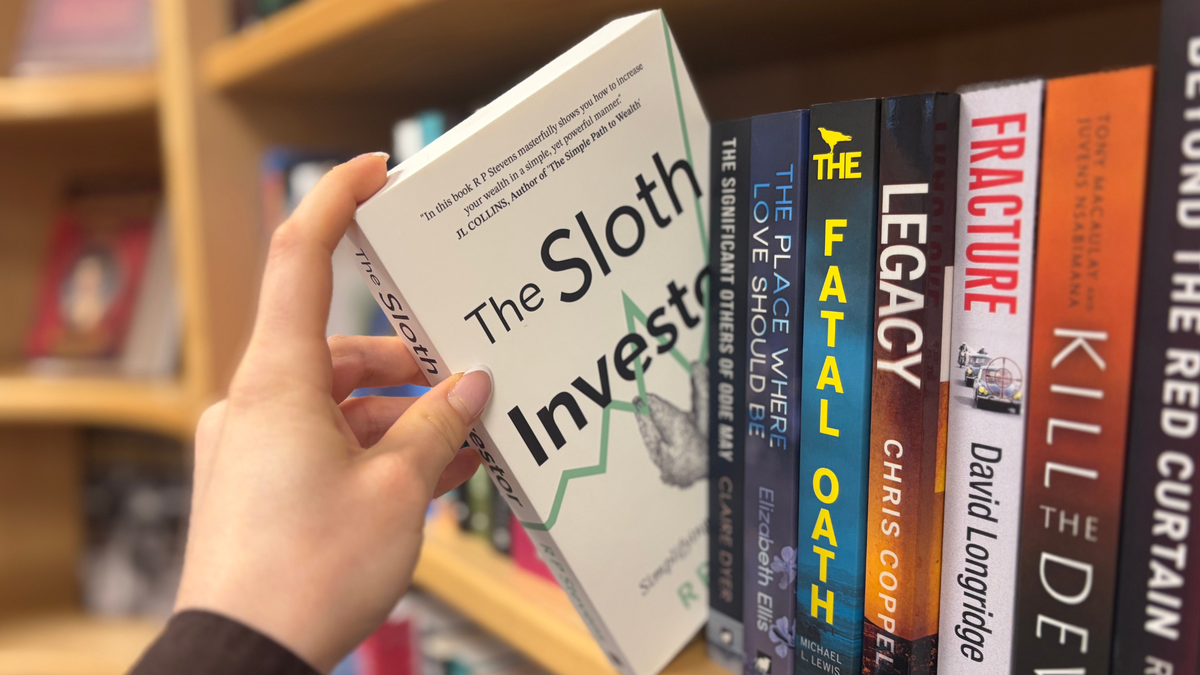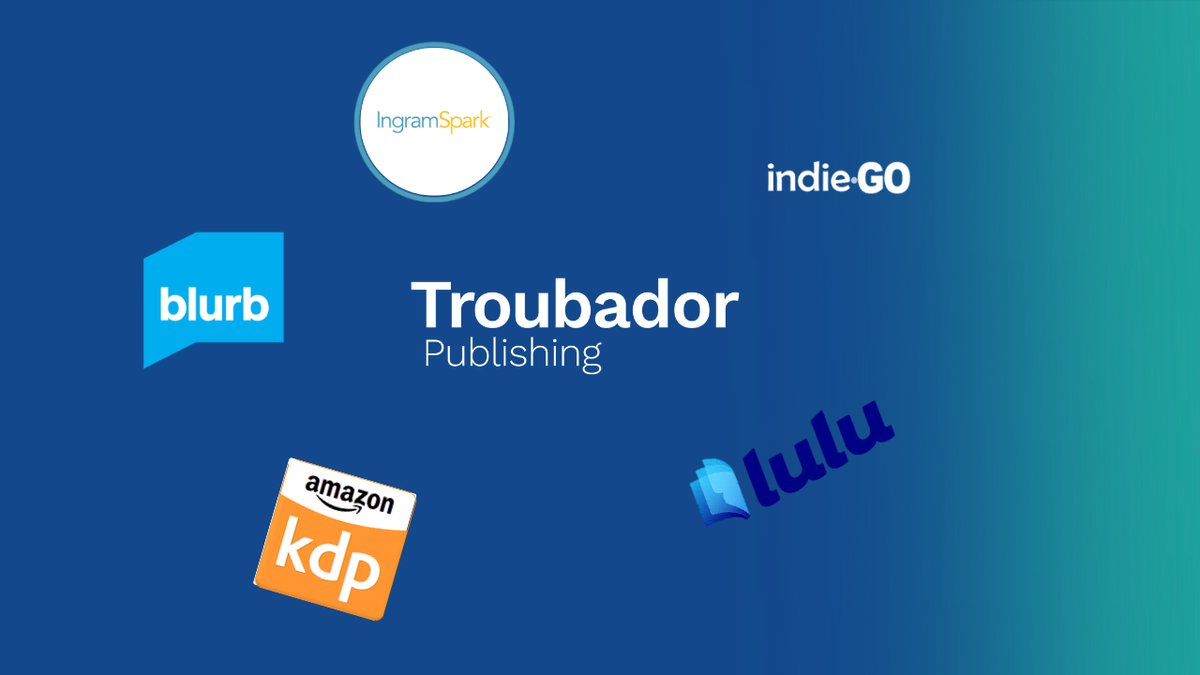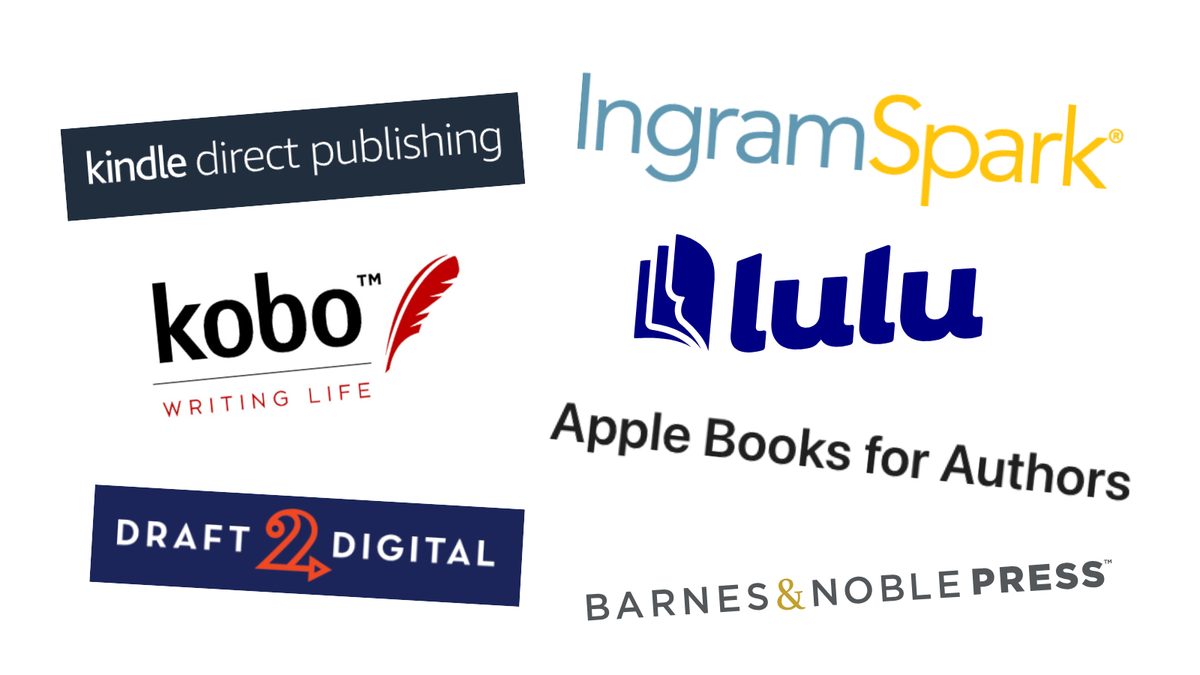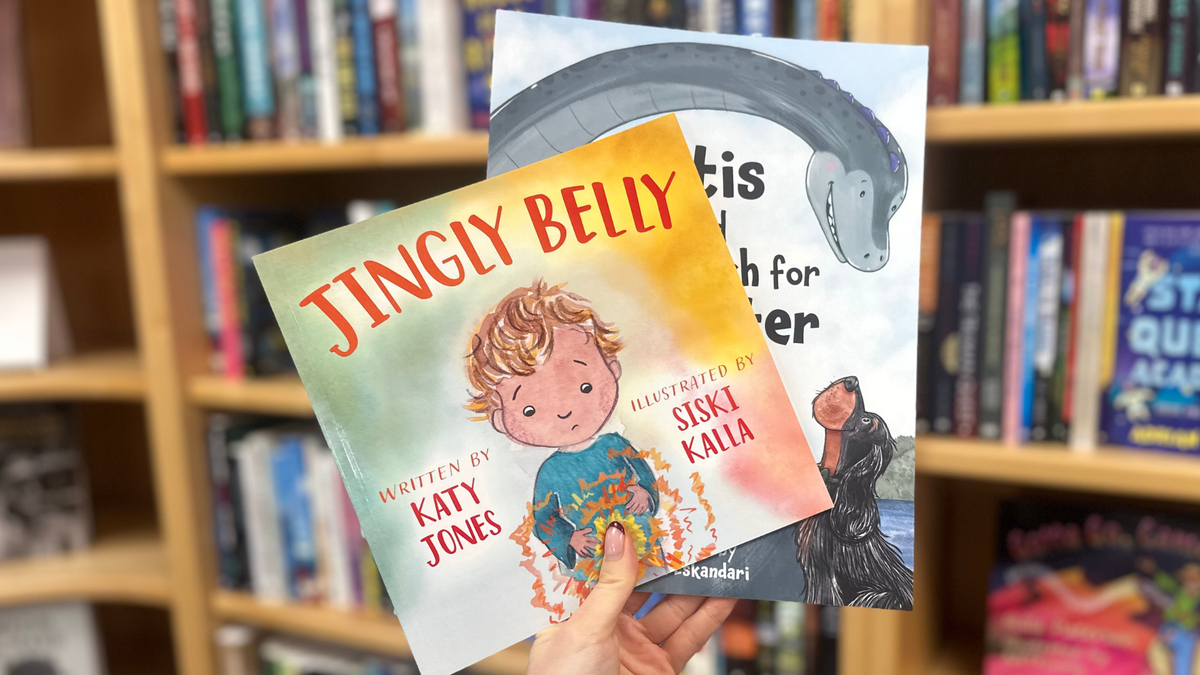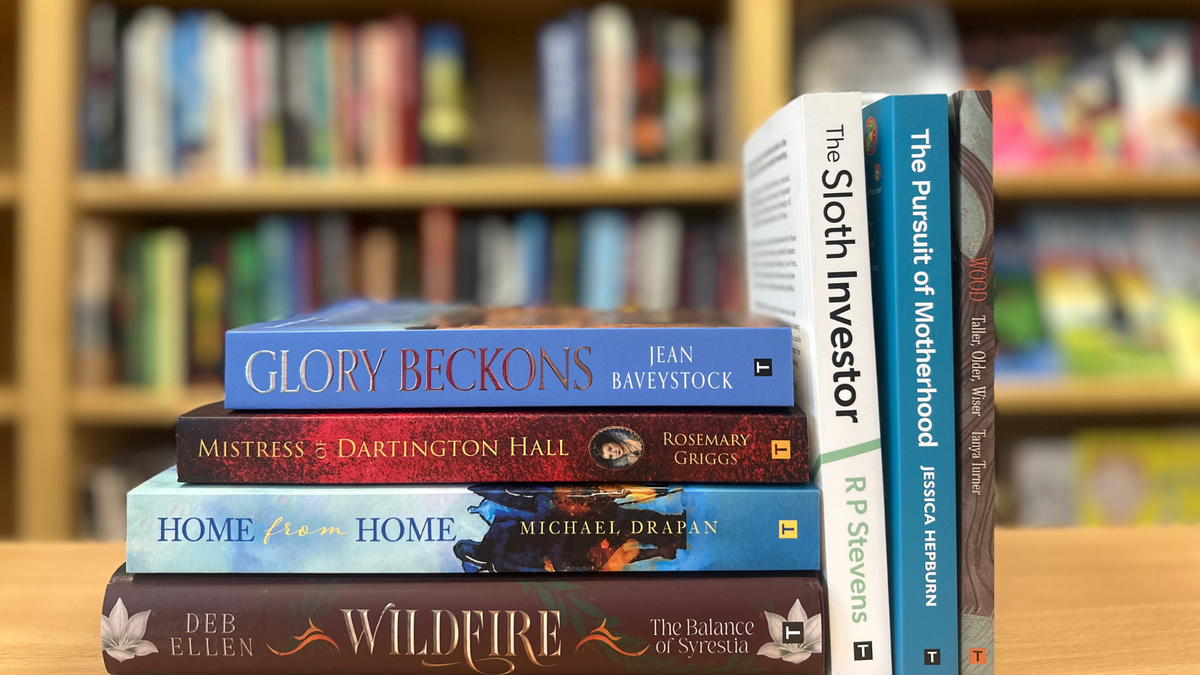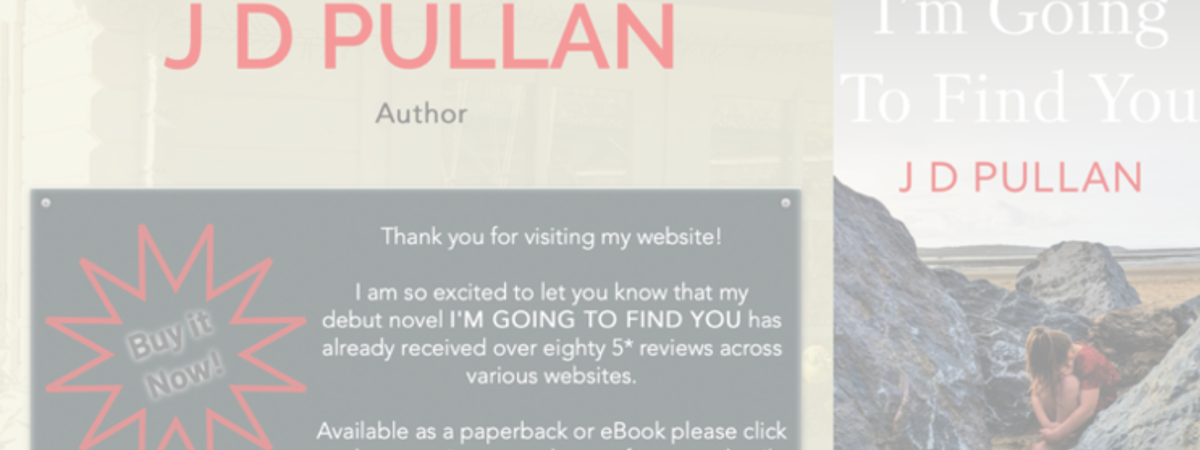
23rd November, 2022
8 min read
Book Promotion. Direct to reader marketing tips
Written by:
Troubador Publishing
In the third blog about book promotion, J D Pullan considers the importance of author websites, newsletters, and reader reviews to the success of her novel I'm Going to Find You which was published in 2021.
'My first piece of advice is to have a strategy for book promotion. Even if this evolves over time it will make it easier both before and after publication and enable you to have a detailed plan of what you will do each week/month and make decisions depending on your own personal aspirations. Be certain what it is you want to achieve and how much time and effort you can spend on book promotion. It can be extremely time-consuming.
Author brand as part of your book promotion
Consider your author brand and how you want to come across to potential readers. What motivates or inspires you to write? What is your writing style and genre? Are there any authors you would compare yourself with? Whatever you decide it is important to consider this carefully and be consistent as you start to build a rapport with your readers. Once you have your author brand this branding can feed into your other book promotion activities, such as creating your author website.
Digital platforms for book promotion
Author websites, newsletters and reader reviews can all be powerful book promotion tools but think how you will use these and in what combination.
Author Websites for book promotion
I read through all the information from Troubador and joined Jericho Writers, who offer advice for authors who are looking to get published, either traditionally or independently. I devoured every morsel of their websites, joined webinars, and watched numerous masterclass videos. Following this research, I decided to create my own author website and set up a regular newsletter for book promotion. My aim was to build a small following in the run-up to publication in order to reach out to potential readers beyond my friends and family. However supportive they are it is essential to do this to enable your book sales to grow over time.
Top Tips for creating an author website
- Create this as early as possible – do not leave it until after publication. I built mine about five months before my book was released and enjoyed developing it. However, it did take a lot of time to get it how I wanted, and it does require ongoing maintenance.
- Research other author websites, especially those of similar genres, to get ideas. Do also research different website providers to decide which will suit you best.
- Decide on the content you want to include and how you want it to look. Basic info should include details about your book(s), a little about you the author and links to sites where your book can be pre-ordered. Make the latter as easy as possible for visitors as this will benefit sales when it is published.
- Make sure all website content is consistent with your author's brand.
- Test it on friends/family/colleagues to get feedback before you publish it more widely. You can do this quite easily as no one will visit it until they know it exists.
- If you are not confident doing this yourself Troubador offers a range of options for creating and hosting author websites to suit all budgets.
- It is important to continue to share news after publication and to keep your website up to date, if it isn’t it may look unprofessional. I try to add monthly updates about book club visits, reviews etc. as well as articles about things that have inspired my writing, just to keep it ‘fresh’.
- Make it as easy as possible to buy your book – have links to sites where your book can be bought and place these in prominent places, like at the top of the home page.
- Use Google’s analytical tools and review statistics on a regular basis. For example, website traffic or the time browsers spend on different pages is extremely useful and you can use this insight to analyse what is or isn’t appealing to visitors, then make improvements to encourage more visitors and more return visits.
- Have a contact page where readers can subscribe to your newsletter or get in touch, it’s a great way to get feedback too.
- Offer book promotions – signed copies, free draws etc. all help to encourage website visitors and you can also promote these on your social media.
- Finally, but very importantly, always make sure your website works well on different devices, including a mobile phone. The format is quite different to that of an iPad or desktop, and this is the device most visitors tend to use.
Newsletters for book promotion
I started my newsletter three months before publication and found recipients loved hearing about progress including cover design, proofreads etc. This meant by the time it was published subscribers were looking forward to buying it. Jericho Writers has a masterclass video available to members titled “The Art of the Newsletter” presented by Clare Mackintosh, one of my favourite authors, which I found particularly useful. It includes tips on how to build a mailing list and stay in touch with your readers, something she herself does very well – and a newsletter is an important tool in your book promotion toolbox.
Top Tips for creating an Author Newsletter for book promotion
- Include a variety of articles but do not make the newsletter too long. Mine usually include book recommendations, which readers have sent me, plus information about topics loosely linked to my book e.g., location, and timeline (being set partly in the heatwave of 1976 has provided plenty of scope for this!)
- Subscribe to other author newsletters to see what approaches or formats you like and gather ideas. I find they vary a lot; some are far less engaging than others so you can learn from these as well as the good ones.
- Always use a recognised application to ensure your newsletters are compliant with data protection laws. I use Mailchimp - which is free to lower volume users – and have found it very user-friendly but there are others.
- Keep these going after publication but don’t over-commit. Whereas monthly was doable for me before publication it wasn’t afterwards as there was so much else to do. I now aim for three or four a year.
- Make sure they are professional and there are no mistakes otherwise it will reflect on your writing and may deter potential readers.
- Think carefully about content and keep articles interesting and relevant. Ask for feedback e.g. book recommendations. I love hearing from subscribers about books they have enjoyed or their thoughts on articles I have shared. One reader asked me to settle a family argument… they had each read my book but could not agree whether Lundy Bay – an important location in the plot - really exists and, if it does, whether you can see Lundy Island from there and if one had been named after the other. The answers are yes, (probably) no and no respectively so the next newsletter included a fun article about this and true facts about both. If you’re wondering, lundy is the Cornish word for puffin, so this is where the name for both most likely came from.
- Reducing the frequency means I can put more thought into them and make them more appealing to subscribers. I have found readers like to hear news about book one but are equally keen to know how book two is coming along, so issuing them less often frees up time to make progress with this too.
- Do include competitions when budget allows as these encourage recipients to share your newsletter with friends to widen circulation. Signed copies and chocolate work well and, being relatively inexpensive, the return is worth it. My book is set in Cornwall, and I found a local business selling handcrafted chocolate, the cover of which was the very location of my novel – perfect for prizes!
Reviews, Recommendations and Ratings
Do not underestimate, as part of your book promotion, how important it is to get good reviews, especially as a debut author. Most readers – and reading groups - will buy a book based on the recommendations of others
Top Tips for gathering reviews from readers for book promotion
- As soon as it is published do share your book with friends and family. If people enjoy it ask them to leave a review or rating. The more 5* (or 4*) ratings you can get the better as it is then much easier to talk about your book to booksellers if you have readers raving about it. On the flipside do not worry about lower ratings – no book will be loved by everyone, and it shows ratings are genuine.
- Don’t be shy! If people tell you they have enjoyed your book ask them to leave a review, or if not just a rating without comment. I was very nervous about this at the outset, but they make a huge difference to debut authors and I have found most people don’t mind being asked at all, in fact, once you explain the importance most are delighted to help.
- Set a goal and measure against this. I initially aimed for twenty ratings with an overall score of between 4* and 5*. I thought this would be a sufficiently large sample to demonstrate to bookshops and potential readers that my book was worth considering. Troubador ensured my ebook was available on NetGalley and this certainly helped to get some positive reviews early on, but it was important to keep going. As a debut author, this aspect was absolutely terrifying at first – my book was finally ‘out’ in the real world – but as reviews started to appear it became less scary. There now seems to be a steady flow as a wider circle of readers are buying my book and for ease, I have a simple spreadsheet to track the overall position which I update weekly. At the time of writing this article, my novel has received 145 ratings and I am delighted with this… but obviously now aiming for 200 in total with at least 150 (75%) at 5*!
- I always do my utmost to support local bookshops but, love them or hate them, Amazon is key. Get as many positive recommendations and reviews as you can on this website as it is where most people look, even if they then buy your book elsewhere. Waterstones and Goodreads are also very popular.
I hope that you have enjoyed my three blogs: Promoting Your Books into bookshops, Hints and tips on using social media for authors, including Facebook, Instagram, and Blog Tours and this blog, Book Promotion – direct to reader marketing tips. I wish you all the best with your own book promotion!
I'm Going to Find You was published by Troubador in November 2021.



